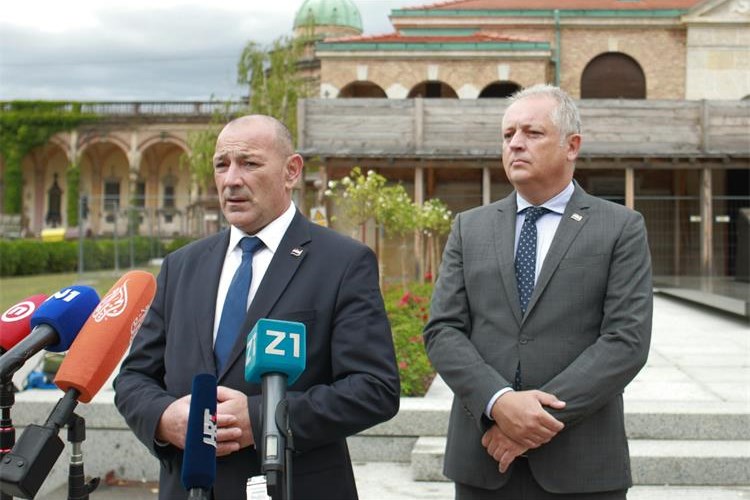- Published: 23.08.2021.
Medved: Government creates tolerant society
War Veterans Affairs' Minister, Tomo Medved, said on Monday at an event observing Black Ribbon Day that the government was creating a tolerant society which acknowledges and builds relations that guarantee Croatia's prosperity.
Medved laid wreaths and lit candles at Zagreb's central Mirogoj cemetery marking Black Ribbon Day, the Europe-wide Day of Remembrance for the victims of all totalitarian and authoritarian regimes, which is an international day of remembrance for victims of specifically Stalinist, communist, Nazi and fascist regimes.
"After this, I am travelling to Gospic where we are burying the remains of 102 WWII and post WWII victims, exhumed in the wider Lika area," Medved said at Mirogoj.
Asked why there will be nobody from the government in Jasenovac this year, Medved said government members were visiting Mirogoj, Macelj and Goli Otok today, and that Jesenovac was for some other occasion.
On this year's Black Ribbon Day, Interior Minister Davor Božinović will attend commemorations in Macelj and Transport Minister Oleg Butkovic on the island of Goli Otok.
Macelj was a site for mass executions committed by the Tito-led Partizans in the wake of the Second World War.
The Goli Otok and Sveti Grgur prison camps operated first as hard-labour detention camps for people accused by the Communist authorities of supporting Soviet leader Joseph Stalin after Yugoslav Communist leader Josip Broz Tito severed ties with the Soviet Union in 1948 or who for whatever reason were declared enemies of the state. They were later transformed into regular prisons and closed down in 1988. According to historian Martin Previšić, 13,000 prisoners were held in Goli Otok between 1949 and 1956, when it was transformed into an ordinary prison, and over 400 of them died there.
No difference between victims
Asked if the government was making a difference between victims, given that its minister mostly attend commemorations for victims of communism, Medved said there was no difference.
Asked about the ban on the 'For the Homeland ready' Ustasha salute, Medved said that the task force for dealing with the past had given guidelines how to treat certain insignia and that courts were acting accordingly.
Text: Hina
